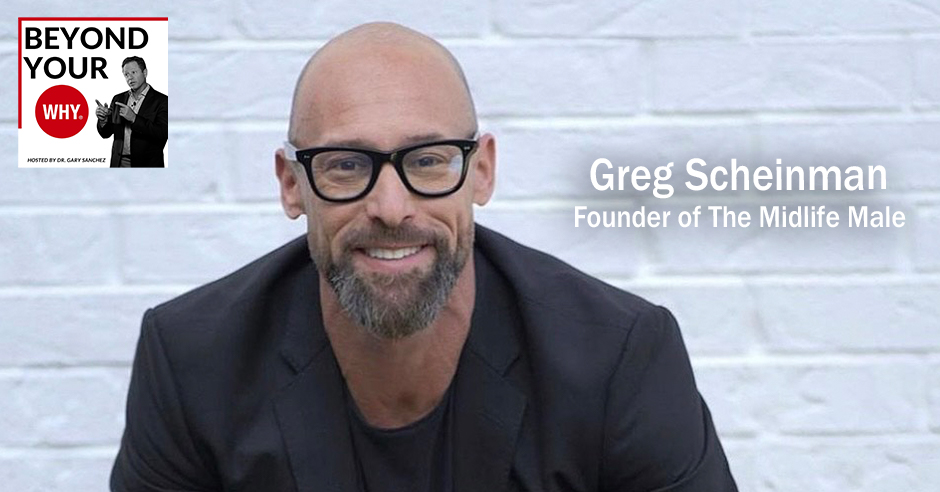
The world is complicated as it is. Why make life harder? If you are one that makes everyone else’s life easier, then you must have the WHY of Simplify just like today’s guest. Dr. Gary Sanchez is with Greg Scheinman. Greg has more than 20 years of experience launching and leading businesses to success. He takes us into his journey, following a path of the least resistance that led him to create Team Baby Entertainment, INSGroup, and ROW Studios. Currently, Greg is the Founder of The Midlife Male, a media company and performance coaching program helping men maximize middle age. He shares how he is simplifying how they can find success through what he calls the Six Fs. Find out how Greg is living a harmonious life and exploring authenticity. Learn to look at midlife from a much simpler view, seeing age not as something to fear about but something aspirational.
—
Watch the episode here
Listen to the podcast here
The WHY Of Simplify: Navigating Towards Midlife Success With Greg Scheinman
In this episode, we’re going to be talking about the why of simplify. It’s a very rare why. If this is your why, you are one of the people that makes everyone else’s life easier. You break things down to their essence, which allows others to understand each other better and see things from that same perspective. You are constantly looking for ways to simplify from recipes you’re making at home to business systems you’re implementing at work. You feel successful when you eliminate complexity and remove unnecessary steps.
You like things direct and to the point, “Don’t give me the fluff, just hit me with the facts.” I’ve got a great guest for you. His name is Greg Scheinman. He has twenty-plus years of experience launching and leading businesses to success such as Team Baby Entertainment, INS Group, and Rose Studios. Team Baby was acquired by Michael Eisner. INS group was acquired by Baldwin Risk Partners. He is currently the Founder and face of Midlife Male, a media company and performance coaching program, helping men maximize middle age. His weekly podcast and newsletter reach 15,000 people. He is a bestselling author, coach, athlete, and most importantly, a husband and father to two amazing sons. Greg, welcome to the show.
It’s great to be here. Thank you for having me. That doesn’t sound as simple as you read.
You got to simplify that. Where are you right now? Tell everybody what city you’re in currently.
I’m in Houston, Texas. I have been in Houston, Texas for 21 years now. My wife was born and raised here. I am a born and raised New Yorker who happily has migrated and now has a life as a Texan.
Let’s go back to your life. Take us back to when you were in high school. What was Greg like in high school?
Right up until the end of high school, life was pretty simple. I was born and raised on the north shore of Long Island. We were in an upscale community. Mom and dad were together. I have two younger brothers. We’re privileged, very much so, with no hardship. We went to the school closest to our house. We went away every summer to camp and played ball up in New Hampshire. Life was very simple and good. I was popular in high school. By default, things came pretty easy to me back then.
Were you into sports?
I did sports. I was athletic. I swam and played tennis. Later on toward my sophomore, junior, and senior years of high school, I got very into fitness and lifting weights. I had knee surgery early, so it got me into lifting weights and taking care of myself. I’m always athletic and happy. In my senior year, my father got sick. He got cancer and ultimately passed away not long after. That’s when simple got very hard. Heading off to college was the first real trauma and the first real hardship, losing an actual father figure, the changing of the family dynamic, and going off on my own to college, all at the same time.
Where did you go to school?
In the University of Michigan in Ann Arbor. It was the best school I got into. I wanted a big ten-atmosphere. It’s a great school. I knew a few people there. I had a good experience when I had gone out to visit. That was where the dividing line in the country was set. I didn’t want to be too far away from my mother at that point.
I don’t know if you heard what I said, but I said it’s too bad. The only reason I said it’s too bad is because I went to USC. USC has a big match-up with Michigan. I heard a lot from people that went to Michigan about those rivalries.
You guys are better than us for quite some time. Now we’re starting to get good again. When I was there, we were really good. We hit a rough patch for many years. We’re starting to get back again.
It’s the same with us. We hit a pretty rough patch and now we’re getting back. A lot of money is now being poured into it, good and bad. I don’t know how I feel about that. You’re at the University of Michigan, what did you major in there?
Partying and drinking. That was it for a while. I spiraled out of control while I was in college. I didn’t have anybody looking over me or paying attention to what I was doing. I’m short of making sure that I passed and continued to have school paid for and taken care of. I didn’t over-index in academics. I was a Communications major while I was there. I thought that I wanted to be in entertainment and film. I was gravitating towards anything that did not seem serious, and that didn’t seem like I had to put a lot of work in. I was the guy who was looking for the simple way, the easier way out, or the path of least resistance. Let me do what comes easily and naturally to me.

Did you end up with a degree in Communication?
I did. I also was in a rush for whatever reason to get out of there early. I ended up graduating in three and a half years rather than four, and staying and using the extra time to have more fun. It was always what’s easier. I could take a course that’s less challenging, pick up the credits, and get through it. I always thought I had to have the way. There had to be an angle. I did graduate early. From what I remember, it was a positive experience at school, but I was also dealing with a lot of personal trauma, loss, and grief that I wasn’t addressing.
You graduate with a degree in Communication early, then what happens to you? Were you off to get a job? Where did you go from there?
I guess that’s the path as a young man that you’re supposed to follow, which is graduate college. I come back to New York where I’m from and you’re supposed to get a job. What did I do? I wanted to get a job in the entertainment industry. I thought I wanted to be a film producer and get into that industry. I got an apartment in Manhattan, a shoebox-type apartment. I ended up getting my very first job right out of college as Harvey Weinstein’s assistant at Miramax Films.
I landed on Harvey’s desk right out of college as the number four assistant. I know somebody that knows somebody. The next thing I know, I’m there as assistant number four. When you think about mentorship or father figure or who is the next man in your life post-graduation, dad wasn’t around anymore, this was what I got hit in the face right out of school. I landed on Harvey’s desk as the number four assistant. Within a couple of months, I ended up being the number one guy. They promoted one and fired another that refused to travel with a female. The next thing I know, I’m the guy.
What is he like?
I guess one of my crowning moments was I have the distinction of having told Harvey to F-off 30 years before the #MeToo era. My rationale for that was my father would roll over in his grave if he knew I let somebody talk to me and treat me that way without taking care of the situation.
What do you mean by that?
This comes up a lot. I never saw Harvey do anything illegal. That being said, I believe everything that I’m hearing and everything that he’s doing. When I was with him, this goes back 30 years, he was a prick. He was already on the list of worst bosses to work for in America. All of it was there, but it had not transcended and crossed the threshold into illegal, immoral, or everything that has gotten him exactly where he deserves to be now. It was a completely inappropriate and hostile work environment.
I’m a 21-year-old kid and most people put up with it because they wanted to get promoted within the industry. I was either too egotistical, narcissistic, ego-driven, stupid, immature, or whatever to think that that was the only way I could succeed in the industry, or that could possibly hurt me if I got up and left, so I did it anyway. That’s what I did. I left, but I still ended up producing a few movies on my own. I accomplished my goal of dedicating them to my dad, seeing his name up on the screen, and doing that. It then became a little bit of, “Be careful what you wish for,” because it wasn’t what I wanted. It wasn’t the healthiest lifestyle. It wasn’t what I saw myself doing long-term.
What do you mean by that?
Early on, you don’t know what you don’t know. Because I didn’t have a family business to go into anymore, I didn’t have anybody necessarily advising me or mentoring me and getting great advice. I had this opportunity to try different things, good and/or bad, and wing it and be curious. I believed we’re bought into certain stereotypes, perceptions, or ideas that I thought, “It would be this,” and it turned out to be that once you tried it. I didn’t like the downtime between projects. Do you know what they say about acting and film sometimes, “They don’t pay you for the acting but they pay you for the waiting?” There’s a lot of time in development and waiting around. I’m somebody that requires a little bit more movement.
You leave Harvey Weinstein and you start doing some other movies yourself. Is that when you got into Team Baby Entertainment?
What happened was I thought I was going to get out of the entertainment industry. I made a few movies and sold them to a production company. From there, we had a little bit of runway. Ultimately, around that time, I met Kate, who is now my wife. We decided to relocate to Houston, Texas where she was from. I wanted to get out of New York, LA, and all the other Miami stuff that we had done. Houston was where she was born and raised and we decided to settle down here. That’s where the impetus for Team Baby came from.
When we had our first child, our oldest is 19 now, I’m there like a lot of entrepreneurs. Where do you get ideas and how do things happen? You’re sitting around with nothing to do. In this case, I have nothing necessarily to do but I know I need to do something because I now have a family to take care of. This runway is going to continue to get shorter if I do nothing. Sitting at home as a new dad, what are we watching? We’re watching Sesame Street and Baby Einstein. For reference, I’m 50 years old. Go back, give or take, 25 years at this point.
There’s picture-in-picture on these giant TVs. In one little tiny picture, I got ESPN on because that’s what I want to watch. In the big picture, you got the kid plopped down in front of you glued to Baby Einstein and Sesame Street. I’m sitting there going, “What if we combine these? There got to be other dads at home that like sports and saddling their kids overall. How do we brainwash them into becoming fans of our teams or using the things that we’re into to help our children or do this? It’s a win-win for both of us.” That was the impetus of Team Baby Entertainment. We created this line of sports-themed children’s DVDs that caught fire. If you were a Yankee fan, we had a baby Yankee DVD narrated by George Steinbrenner.
If you were a USC fan, we had Rodney Peete. Rodney Peete narrated our Baby Trojan DVD. Matthew McConaughey did the University of Texas. We created this whole line of children’s DVDs and that’s what blew up. I ended up partnering with Michael Eisner after he left Disney. We were the first acquisition he made. We’re building up the company for a period of years before ultimately selling the rest of it to him. He put it in with the Topps baseball card company, which he had acquired along the way. We saw quite a meteoric rise, and then we saw a collapse when the DVD market was changing and things were becoming app-based and going online. I got to see all sides of that. It was an interesting dichotomy in my identity.
From there, did you switch over to INS group?
I did the exact opposite. I decided to go from risk taker to risk manager. All this risk was making me stressed. I didn’t want to move back to New York. I didn’t have another million-dollar idea. We’re sitting back here in Houston, I have two children, and this rollercoaster of life is happening. I’m like, “What am I going to possibly do next?” This is a theme that has come up in my life a few times. When I don’t know what to do, I typically like to go out and talk to people.
If I don’t know the answers, let me start asking better questions to people that might be able to help me because I’m a simpleton. It’s like, “Give it to me simple.” I knew how to make things and how to produce things. That’s what I had always been doing. Here I am, back in Houston without an idea what to do again so I started a television show. I said, “I want people to talk to me. What’s the best way to get important people who are smarter than me and more successful to talk to me? Let me bring a camera and a microphone.” Typically, people like talking about themselves and want to do that.
If you don't know the answers, start asking better questions to people that might be able to help. Click To TweetI started calling very important people in and around the Houston area. I’m asking them if I could spend a day with them, “I have a television show. I interview entrepreneurs and risk-takers. I would love to come and spend a day with you and learn.” They started saying yes. This was Jamey Rootes who ran the Houston Texans. This was Deborah Cannon who ran Bank of America and was the Chairman of the Houston Zoo. The list went on and on. McClelland, who ran H-E-B, the largest chain of drugs store. I made a bucket list of whom you would want to talk to.
I then went to PBS. I said to PBS television here, “I’ve got a 30-minute talk show interviewing the top entrepreneurs and risk-takers in Houston. Can I put it on TV?” They were like, “What do you mean?” I’m like, “Seriously. I’m going to bring you fully completed episodes, 30 minutes long. Here’s the guest list. Here’s who’s on it. All I need is some airtime.” They’re like, “Okay, if you’re telling the truth.” They checked out my background. They’re like, “This guy actually has made some stuff. We’ll give you Thursdays at 7:00.”
I then went back to more people and said, “Now, I’m Greg for PBS. I’ve got 7:00 PM on Thursdays.” We ended up doing 24 episodes of this. Along the way, I joined INS Group which was short for Insurance Group. I was a client of the firm and I knew the principles for years. It felt like the least creative and least entrepreneurial thing I could possibly do after I had done everything I had done, but also seemed responsible as a man, as a husband, as a father, and as a provider.
Remember, this is what we’re supposed to do. We’re supposed to follow this path. I’m like, “Maybe this is the time I’m supposed to follow the path, residual income, build a book of business, and have somebody paying for my benefits and a 401(k) rather than me. These seem to be the right things to do.” We had a conversation. They encourage me to join the firm. They’re like, “You can ensure anything you want, Greg. You can make it as entrepreneurial as you want.” We became partners. I ultimately invested in the firm. That was the best move I’ve ever made in my life. I had been smart enough to work out an arrangement with them so that I could have a seat at the table.
If I achieved this, I could have equity. I was able to invest in the firm and achieve certain benchmarks. That turned out to be the best move I ever made. I used the talk show to interview these types of clients and prospective clients. I didn’t know that at that time, but that’s what it became. That’s how I built my book of business within the firm. I never controlled anything there. I was a smaller partner with incredibly smart people and successful people that surrounded me.
I learned a ton. It never was a great fit for me personality-wise, dress code-wise, office-wise, and everything. There’s a lot in my book about that and what I coach guys on. I work on now about authenticity, being able to differentiate yourself, and working within a system or getting out of it. I spent fourteen years there until the firm was acquired, which is what also allows me to do what I do now. It’s a longer answer than you want. Thank you for listening.
That’s good. For those of you that are tuning in, Greg’s why is to simplify, make things simple and easy to do, and understand. How you go about doing that is by challenging the status quo and thinking differently, and putting on no limits. Ultimately, what you bring is a way to contribute and add value to other people. Your why is simplify. Your how is challenge, and your what is contribute. Once you were done, it’s now INS Group.
I used to represent a slaughterhouse in Corpus Christi, Texas. This is when I knew that this business was not for me the way that I was doing it. I would have to go down to Corpus Christi, Texas, and I represented a slaughterhouse down there. I would show up at the gate to have a meeting there. I would hand them my card and they would see INS on the card.
In Corpus Christi, Texas at a slaughterhouse that employs 2,000 people, the security would radio to the back. You would see people leaving and running out because they thought the INS was there as opposed to the guy who was the insurance agent. The card design was wrong and the pronunciation was constantly wrong. I would’ve to tell them, “Your people could all come back. Nobody is getting deported today.”
You’re out now of INS group and now you’re onto your next thing, which is Midlife Male. Let’s talk about that for a minute. What is that about?
What happened during my time at INS Group was I continued to search for a way to bring creativity to a professional service business. The way I operate and think is different from most out there. While I want things to be simple, efficient, and effective, the manner in which I go after simplicity is hard for certain people to understand. This was always part of the bone of contention, even with my partners and so on. I have a tough time doing “things.” To me, it seems like the normal way to do things the way I want to do them. Habitually, I can do that consistently but that seems a little bit different out there. What happened was I started writing. The TV show became a podcast.
People stopped watching TV and PBS. My book of business got big and podcasts became big. I said, “I’ll start a podcast,” so the TV show became a podcast. Those conversations on the podcast started to transcend business and insurance, and become very deeply personal. I wasn’t interested that much in insurance. I was interested in personal connection, networking, content creation, relationship building, and all of that, That’s where the conversations went. I rebranded under this moniker. I still don’t know who coined the term midlife male. These are conversations with midlife males and it’s like, “That’s like you.” I was like, “Okay,” so I kept it.
I rebranded around the moniker of Midlife Male and the podcast became a newsletter. It started going out every week, which was like a tree falling in the woods for a while. It was therapeutic. It was a way for me to express myself. I talked about redefining and reframing success. What was happening to me was that the metric for success was not salary and title, and what I had been taught to believe in chasing these things. It was a more holistic view of what success looks like in happiness. I was finding myself. I was looking and leaning into what that authenticity was.
When you chase authenticity where it does not exist, it’s exhausting. I found myself exhausted constantly. What salary and title became was what I started to call my six F’s. It was Family, Fitness, Food, Finance, Fashion, and Fun. These were the things that I was interested in. These were the guys I would bring on the show. I would then write about what I learned from these conversations, and how I could aggregate it from everything out there. I curate it down to what landed with me in the simplest ways and then eliminate everything else to create a personal operating system, and a way for me to live that seemed like it simply made sense.
That started getting read by people and circulated around. The podcast started getting listened to. The combination of the podcast and the newsletter, 100 episodes later, became my book. We’re 200 episodes and growing. That became a coaching program for guys reaching out and saying, “Can you help me?” That has gotten into speaking and it’s this combination of this why and how, which is so brilliant with what you do and taking the assessment. Having to take the assessment into the why is so interesting and so fascinating.
We hear so much about finding your why. What I get is they found their why. I get why you want to be a better husband. I get why you want to be a better father. I get why you want to be in better shape. Where a lot of these guys are getting hung up is on the how. That’s a lot of what Midlife Male and what I’m doing is structured for. How can I help men maximize middle age in the how portion? I help you find and identify your why. A lot of the guys I see, they’ll have it or they’ll do something. Now, how do we go from why into how and into implementation? What are the daily positive action steps that are going to get you to realize that why and the outcome that you’re looking for?
We got to get real on this stuff. Can you quit your job and follow your passion? It theoretically sounds great, but it might be the most galactically irresponsible thing you can possibly do in middle age if you don’t have any money and you got kids and an overhead. How can we strategically and tactically make a plan for you to transition or do certain things? There’s a lot of white space between being overweight, out of shape, not moving, and being jacked and physically fit.
How do we make these steps and set them up so that it’s realistic, quantifiable, achievable, and measurable? To me, it’s super interesting stuff that’s out there. That’s what the conversations and the coaching are about. All of this is designed to provide hope and possibility. More importantly, the probability and likelihood of succeeding once you also know what success looks like to you.
How do you define success now?
For a while, I thought it was about needing to reinvent myself. What I’ve learned now is that it’s more about releasing myself than it is about reinvention. It’s about acknowledging and recognizing what fills my tank and what empties it. Back to my six F’s, they are my balanced or harmonious allocation of what my life’s portfolio looks like versus over-indexing in any one area. It’s following the five rules that I created and live under which provide simplicity, structure, and a framework.

Knowing what’s important is the most important. For me, that always starts with family, my wife, and my two boys, breaking the cycle of what I went through with my father, my brother, and other situation, with health, sustainability, and longevity. Finance and money are super important to be successful. How much do you need to do what you want to do, when you want to do it, and with who you want to do it? That is it in terms of success for me.
There’s other fun stuff that is a marker of success. What do you put on your body? What do you put in your body? These things matter. They matter to me. Are we having any fun? What are we doing any of this for if we’re not having any fun? To me, success looks like all of those things. It’s revisiting them every single day to remind myself that it is about what you’re doing and living every day, and not this destination or outcome that is seemingly out of reach or so far ahead. That’s what gets lost so much in the definition of success. It’s defined by outcome, achievement, or a milestone moment, and it’s not.
Success is being able to live your message every day and having those normal days that feel good to you. My wife and I were talking about it because Sunday was a nice day for us and it didn’t involve anything special. It didn’t involve spending a lot of money or we weren’t on vacation at some beach. There were no rainbows and unicorns or anything, but it was just a nice day. We exercised, I got the car washed, we walked the dogs, and had breakfast. She went out and did some of her stuff. I went out and did some of my stuff. We regrouped and had a nice wine. We’re like, “This is a nice day. How many of these can I string together?”
Success is being able to live your message every day and having those normal days that feel good to you. Click To TweetI love your take on balance. If you want to accomplish something in your life, does balance exist?
It’s a double-edged sword. It’s a fantastic subject and a fantastic question. I love this area. It’s like consistency. What does it look like? Are we talking about balance in a day? Are we talking about a balance over a year? Are we talking about balance in our overall life? It’s the same thing with consistency. What does it look like? I can say I want to be consistent and work out seven days a week. To me, that’s perfection, not consistency. I’m never going to be perfect. Does consistency look like seven days a week or I’m failing, or does it look like I look at my schedule, Monday off, Tuesday with my trainer, Wednesday yoga, Thursday off, and Friday? I can literally look at it and go, “That’s what consistency and that’s what success looks like.”
It’s the same with balance. Overall balance is BS. Harmony is a better word overall. I think that balance needs to be looked at contextually. If I say, “I’m going to sleep 7 to 8 hours at night. I’m going to spend 30 minutes in my sauna, do three minutes in my cold plunge, eat perfect breakfast, lunch, and dinner, exercise for an hour, do a podcast with Gary, rehearse my keynote, be the ultimate father and husband, and do all these,” there is no way that could be perfectly balanced. I can hit everything, but I’m going to burn out from that. That’s not balance in a day.
If I say, “In a week, here’s what I’m going to do. I’m going to exercise five times a week. I’m going to take two days a week off. I am going to sign in for the cold plunge. I’m going to do it four times a week. I got three days that I can miss throughout. I am going to attend 90% of my son’s games. I am going to record a podcast on Monday. I’m going to do my newsletter on Friday and coach my clients in between.” When you start to stretch it out, back to making it simple, achievable, measurable, and quantifiable, now you can have harmony. We underestimate what we can do in a year, and we significantly overestimate what we can do in a day.
That’s what trips a lot of people up, especially in the hustle and grind 24/7, sleep when I’m dead, and social media pressures of seeing everybody doing so much. I look at some of these guys’ morning routines and I’m like, “I’m exhausted.” Seriously, I couldn’t do that. I look at them going to bed routine or the evening routine. How is this sustainable? Some guys might have bigger engines. Everybody’s got a different bandwidth or capacity, but that’s what the system is set up to do. It is to figure that out. What success looks like for you is different than it does for me, and so on and so forth. The rules still apply. The framework in the system still works. You get to develop your own personal operating system by following these rules.
It gets back to that saying, “What’s the best exercise you could possibly do or the one you will do?”
That’s exactly right. There is no perfect way to eat. There’s no one way to do anything. There’s no one way to be successful. There’s one way to fail when you stop trying and learning. There’s an easy way to fail, but the beauty of this is that there are so many ways to succeed. How do we know that? Look around. At this point, I’ve interviewed 200-plus of the most successful men on the planet. Every one of them does something different.
Fundamentally, they operate very similarly whether that’s morals, ethics, structure, preparation, consistency, and accountability. What they do for a living, their backgrounds, family situation, and financial situation, all of these things are different. I can promise you this. If you put them all in a room, they’re going to get along. What makes them part of the same tribe or like-minded men are these other character attributes that have made them successful. They’re also going to be in there talking about their shortcomings and their failures and not their successes, and sharing and helping the other guy.
Those are almost universally consistent with everybody that comes on. Is there anything I can’t ask you about? I always ask that question too. Is there anything you don’t want me to ask about? Is there anything you don’t want to talk about? I have never got one, “Do me a favor. Don’t talk to me about this.” They’re like, “I’m an open book. Bring it. I’ll talk about anything.”
Greg, last question. What’s the best piece of advice you’ve ever given or the best piece of advice you’ve ever gotten?
That’s good. I need to use that too. That’s a good question. This might be the best piece of advice I’ve ever gotten. It’s to use this question if you want to learn something. I don’t think it’s a singular piece of advice. I’m going to try to answer your question as directly as I can. My dad wrote me a letter shortly before he passed away. In that letter, it said, “There may be men out there with more money than I have, but there is nobody richer than I am when I look at you and your two brothers.” I’ve held onto that as far as what’s important. I thought that was good advice.
The metric for success is not purely monetary. My dad was a successful guy for the majority of his life, but it put things in perspective for me. That letter sits on the side of my bed where I sleep and on the wall, right next to where I am. It has helped me with my two boys and focusing on what’s important. Live your legacy, not wait until you’re gone. That was the best advice. As far as maybe the best advice I’ve ever given, it’s the same. I would take that statement and pay it forward.
I see and work with a lot of men who unfortunately I feel are squandering their time. They’re missing those big moments, the small ones, and the ones that add up with their kids and their wives. They’re choosing to stay in the office a little bit later versus making it to that game. They’re choosing to let the other dad coach because they’re too busy. They think that sponsoring the team is the same as being around the team. They think that it’s a one-week vacation in Mexico when it’s the other 51 weeks that matter. To your point about balance or harmony, we go back to rule number one, “Knowing what’s important is the most important.”
It sounds a lot like it’s being the man in the arena.
It absolutely is. It is about living your message. First, you got to understand who you are and what your message is. My book goes into this a lot. You got to get real, raw, naked, and vulnerable. Take that real hard one look in the mirror and decide what kind of guy you want looking back at you. None of us start with perfect and it’s never going to be, but what are you willing to do each day to get better, have your actions match your words, or get that reflection to feel differently? I love that phrase, “You got to be in the arena.”
None of us start with perfect, and it's never going to be, but what are you willing to do each day to get better, have your actions match your words, or get that reflection to feel differently? Click To TweetThe man in the arena versus the critique on the side talking about the activity, you’re the man in the arena doing it.
It’s also like the Jim Rohn quote, “The signature of mediocrity is not an unwillingness to change. The signature of mediocrity is chronic inconsistency.” I get that you want to change. I don’t even think it’s the chronic inconsistency. I think you are consistent. You’re just consistently making the wrong choice. How can we take the willingness to change and what you’re consistently doing or not doing and put them in the right order and the right prioritization? You got all the skills to do it.
Are you finding that people are not willing to explore authenticity until they’ve experienced enough pain? Is it related to the amount of pain they’ve experienced or the loss they’ve endured? I don’t know if I’m asking this correctly, but is it an avoidance of pain or wanting to seek pleasure that allows people to explore authenticity?
One of the answers I give most frequently is maybe or it depends. Who’s to say what somebody’s degree of pain or trauma is and what’s real to them? The other saying is, “If you take all your problems and throw them out on the table and we all put them out there, what are you going to want? You’re going to want your own back.” I’ve got death in mind. My brother went to prison. I struggled with alcoholism and body image. Throw it all out there. I don’t know what everyone else is throwing out there, but I do know how to at least handle mine to an extent and work on that.
I do think of a few things on there. I feel like the younger guys that reach out to me, and when I say younger guys, I’m seeing a lot more guys in their 30s that are successful but are looking at 40 and they want to see what’s around them. They do not want to go in down that midlife crisis path. They’ve seen it either in their father figures, their fathers, their fathers-in-law, or their bosses. They’re much more proactive in addressing vulnerability, authenticity, and emotion, asking for help, and looking around, “Can you save me $500,000?” I have a lot of respect for that.
In a lot of those cases, they’re not unpacking a lot of baggage. They’re not saying, “I’m coming to the table with all these problems, trauma, and everything.” It’s like, “This is important stuff to pay attention to. I want to avoid trauma, pain, and loss. What can I do to learn and get ahead?” It’s not a sign of weakness. It’s a sign of strength to talk about these things and to get ahead of them.
The guys right smack in their 40s in a lot of ways are very set in their ways and not as comfortable with admitting, “We don’t have all the answers. We’re not who we thought we were going to be. This is not where I thought how I was going to be living. This is not what I thought I was going to look like.” They struggle with opening up on that. They’re trying to continue to do the same things and expect a different result.
The guys in their 50s are coming out the other side. They’re like, “I’ve weathered the storm in a way. Now what? I do have some money. My kids are out of the house. I’ve been married for many years. What do I do for fun?” On that authenticity side, “What do I want to do now?” That takes work to figure out. “I used to think I like to paint.” “Why don’t you try painting again?” We give up hobbies, passion, and things because we think that’s what we’re supposed to do when time and life get in the way. How do we bring some of those things back authentically? Take some work. Go back and figure out who you are.
Is there such a thing as avoiding a midlife crisis? Is it even healthy to avoid it?
We feel like we have to put a name or a title on everything. I know some very old 30-year-olds and I know some very young 60-year-olds out there. I don’t think that it’s just about a number. I get asked all the time where middle age is. Men’s Health put out an article and they say it’s 37 based on a life expectancy of 75. It’s not as simple. Is it a real thing? Yes. Does it affect guys at different ages and stages of their lives? Absolutely. Can you avoid it? 100%. Can you get out of it and course correct if you’re right smack in the middle of it? Absolutely. Is it a death sentence? No.
Can you start seeing aging as not something to fear but something aspirational? Absolutely. I believe all of these things are true. We just have to embrace possibility and probability. It’s not going to happen by default. It’s going to happen by design, and you have to be willing to do the work. I genuinely believe my best days are in front of me, not behind me. I believe I have more energy at 50 than I had at 30. I feel I know where I’m going now more clearly than at any other point.
All of those take a lot of time. It still takes constant work, constant reinforcement, conversations with men like you, going back and revisiting the why, adopting and working on the how, testing and retesting over and over again, and believing that that’s also where the magic happens. It’s not, “This is where I have to be at 55.” As Jesse Itzler says, “Be where your feet are.” It’s like, “This is where I am right now on Monday at 3:00 in the afternoon. The phone is on Do-Not-Disturb.” Spend some more time being present and engaged. When we get off this, this energizes me versus drains me.
We don’t spend enough time taking our own temperature on things. Don’t you like the way you feel around certain people? Maybe you shouldn’t be spending so much time around them. Don’t you like that activity? Maybe you should cut back on that activity. A lot of those things are scary if we think we got to change our peer group. Maybe, but you can. That’s the other thing. You truly can. My friends, my peers, my lifestyle, and my actions now are very different than they were 10 years ago. It’s very different than they were 5 years ago, and they’ll be different 5 years from now.
Greg, if there are people that say, “I love what you’re talking about and the whole idea of having someone to coach me through this process,” what’s the best way for people to get in touch with you, follow you, and see what you’re up to?
I appreciate it. I am not hard to find. You can go to MidlifeMale.com. All the information is there. A lot of free stuff is out there. My newsletter is free every week, and the podcast is also. I have the No BS Guide to Maximizing Midlife and Getting Back What Matters Most, which is a free eBook that you can download. You can email me at Greg@MidlifeMale.com. You can DM me on Instagram @GregScheinman or LinkedIn to talk about coaching, workshops, speaking, or any of those things. I try to get back to everybody through social or other ways that they reach out.
You can buy the book on Amazon. That’s where everybody is getting their books these days. You can buy your copy of the Midlife Male at Amazon. There’s an Audiobook version. I try to be accessible to everybody out there and understand that we are all in this together. I’m no different than the guys that I am coaching, speaking to, writing to, and working with. We’re just sharing experiences.
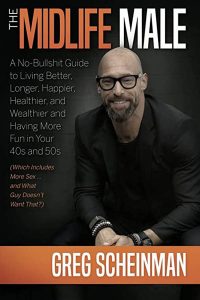
Greg, thank you so much for being here. I appreciate you taking the time to be on the show. I look forward to following you because I am that midlife male. I’m probably a little past midlife male, but it’ll be fun to follow you.
Not by the way you act. As I say, we’re all in this. We’re right there. What are guys like me looking for? We’re always looking ahead too. That’s the awesome part. Thank you so much, Gary. I appreciate it.
—
It is time for our new segment, which is Guess Their Why. My wife and I have been watching the series, The Crown. If you haven’t seen The Crown, it’s about Queen Elizabeth. At least so far, it’s all about Queen Elizabeth. She took over the reins of England when she was in her early 20s. She recently passed away. I wonder if you know anything about her, what do you think her why is? I can tell you what I think based on what I’ve seen so far. She thinks differently, pushes the limits, and changed things to the way that she wanted and were different than what was typical or traditional.
They didn’t have a woman leading these older men at that time. Here she comes along in her early 20s, has to figure things out, and make some big changes. I believe that her why is to challenge the status quo and think differently. My wife has the same why, challenging. She’s very much similar to her and connects with her, at least on what we’re seeing on TV. What do you think? Does that jive with what you are seeing?
Thank you so much for tuning in. If you’ve not yet discovered your why, you can do so at WhyInstitute.com. You can use the code Podcast50 and get it at half price. If you love the show, please don’t forget to subscribe. Leave us a review and rating on whatever platform you’re using and I will see you in the next episode.
Important Links
- Greg Scheinman
- Midlife Male
- No BS Guide to Maximizing Midlife and Getting Back What Matters Most
- Greg@MidlifeMale.com
- @GregScheinman – Instagram
- LinkedIn – Greg Scheinman
- Midlife Male
- Midlife Male – Amazon
About Greg Scheinman
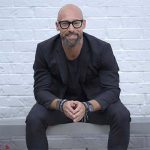 Greg Scheinman has experienced the highest highs— two seven-figure exits from companies he founded or helped build, success as a high-level executive— and the lowest lows— the loss of his father, panic attacks, depression, and alcoholism.
Greg Scheinman has experienced the highest highs— two seven-figure exits from companies he founded or helped build, success as a high-level executive— and the lowest lows— the loss of his father, panic attacks, depression, and alcoholism.
Through it all, he’s developed a method for maximizing your life to fulfill your potential and start living during a time when too many believe they’re “past their prime.”

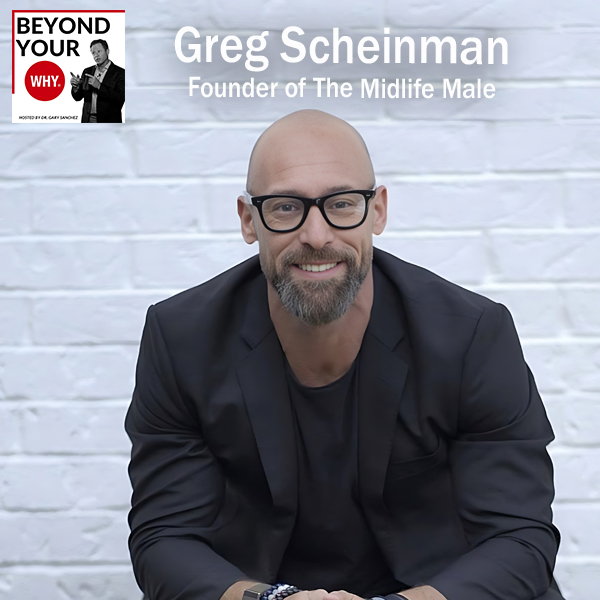
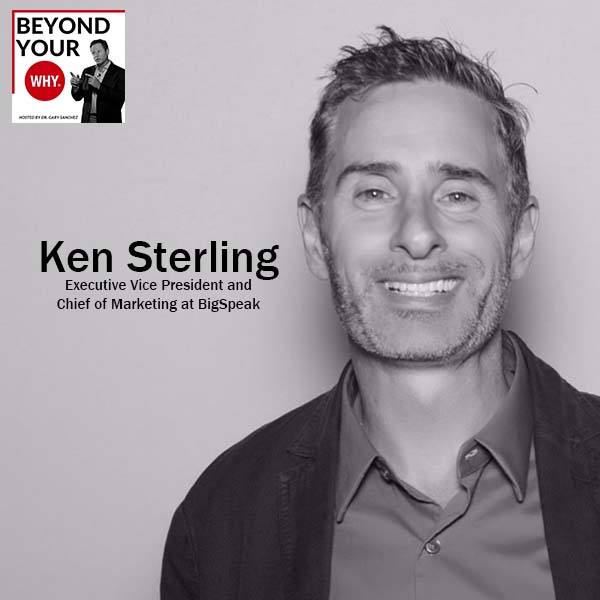
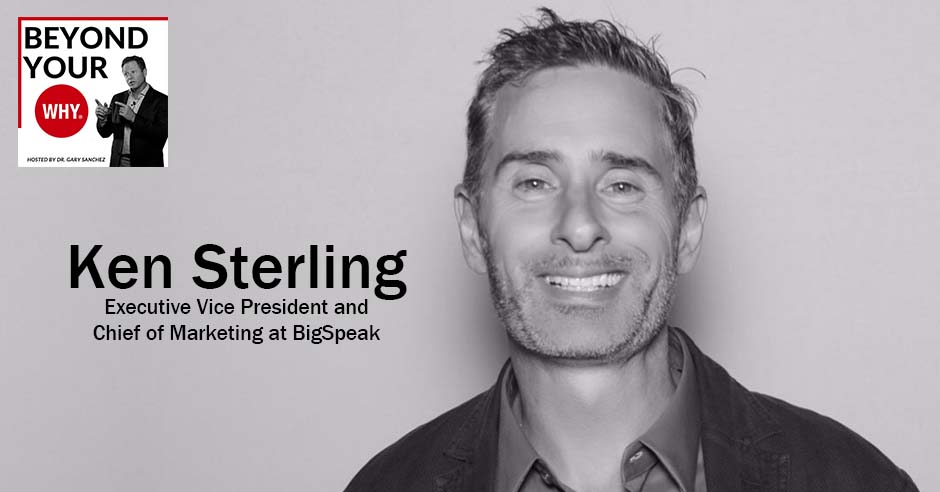




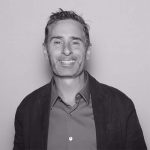 Ken is an attorney and an executive at BigSpeak speakers bureau. He is also an entrepreneur and angel investor in several tech startups. Ken mainly focuses on entertainment, media and well known thought leaders. At BigSpeak he serves as the Executive Vice President and Chief Marketing.
Ken is an attorney and an executive at BigSpeak speakers bureau. He is also an entrepreneur and angel investor in several tech startups. Ken mainly focuses on entertainment, media and well known thought leaders. At BigSpeak he serves as the Executive Vice President and Chief Marketing.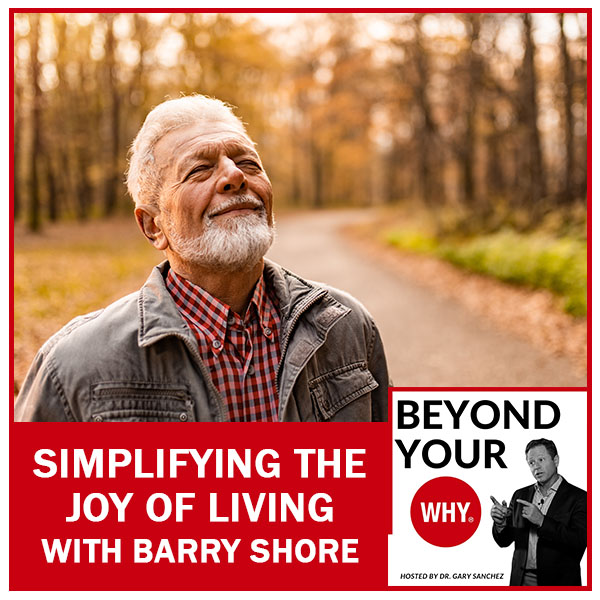
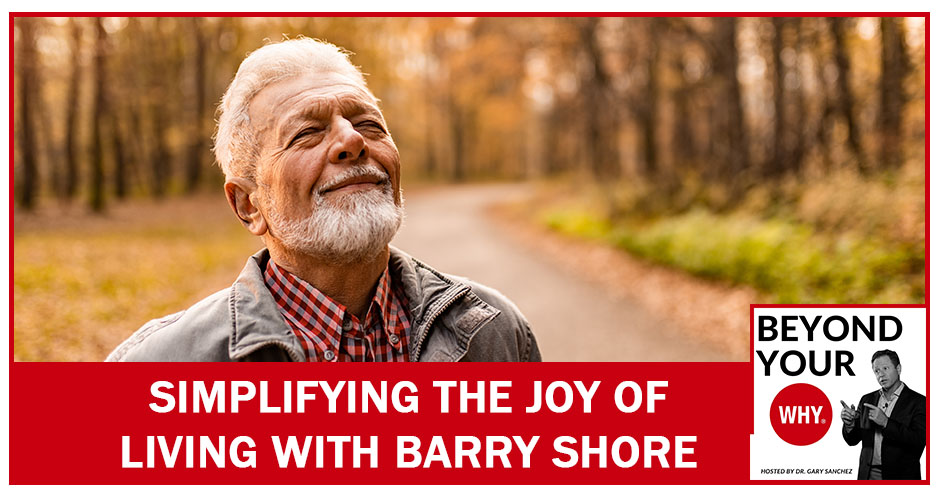
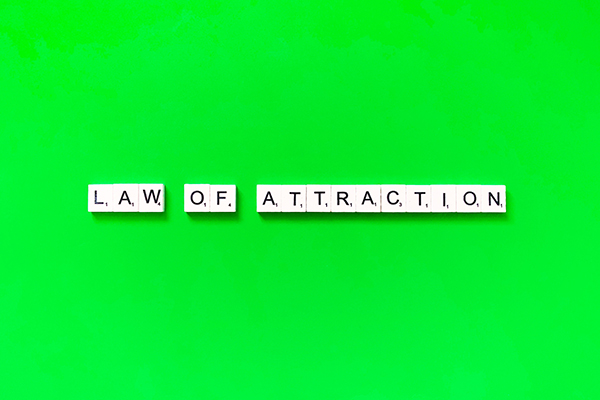
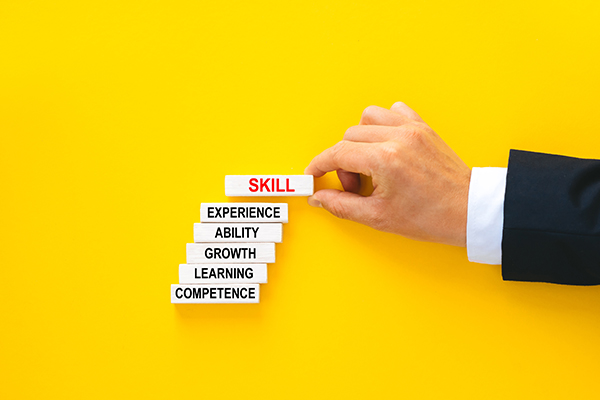


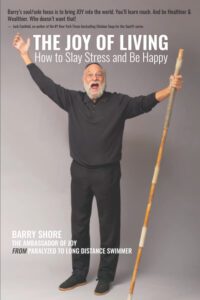

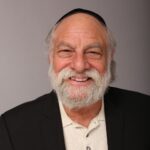 Known as the “Ambassador of JOY,” Barry Shore is a mental health activist, philanthropist, multi-patent holding entrepreneur, speaker, author, podcaster, and former quadriplegic who is now swimming around the world! Barry’s podcast, The JOY of LIVING, is heard globally by hundreds of thousands and has over three million downloads.His latest book, The Joy of Living: How to Slay Stress and Be Happy is available on Amazon and Apple Books.
Known as the “Ambassador of JOY,” Barry Shore is a mental health activist, philanthropist, multi-patent holding entrepreneur, speaker, author, podcaster, and former quadriplegic who is now swimming around the world! Barry’s podcast, The JOY of LIVING, is heard globally by hundreds of thousands and has over three million downloads.His latest book, The Joy of Living: How to Slay Stress and Be Happy is available on Amazon and Apple Books.
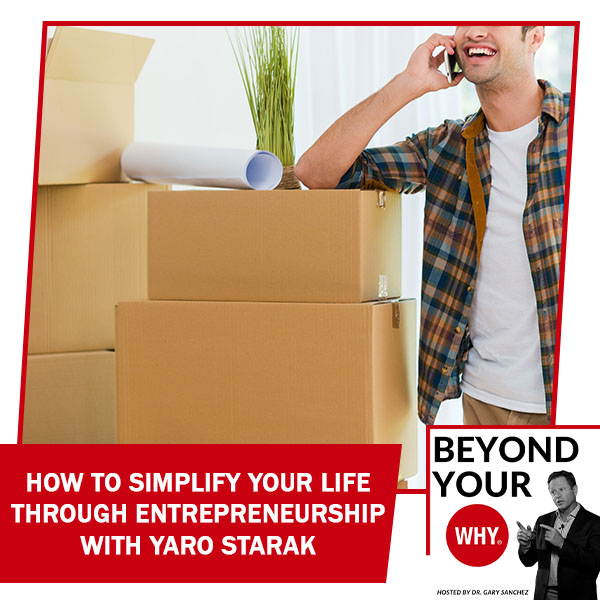
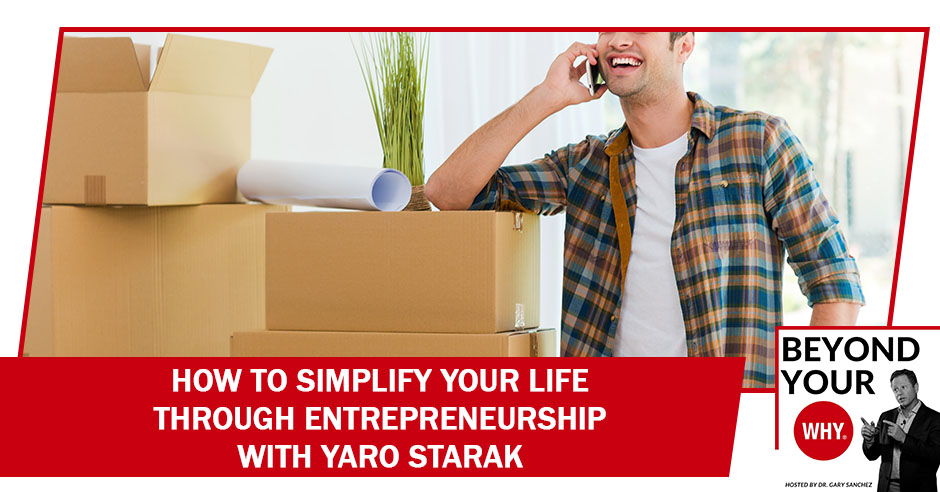




 Yaro is the co-founder of
Yaro is the co-founder of